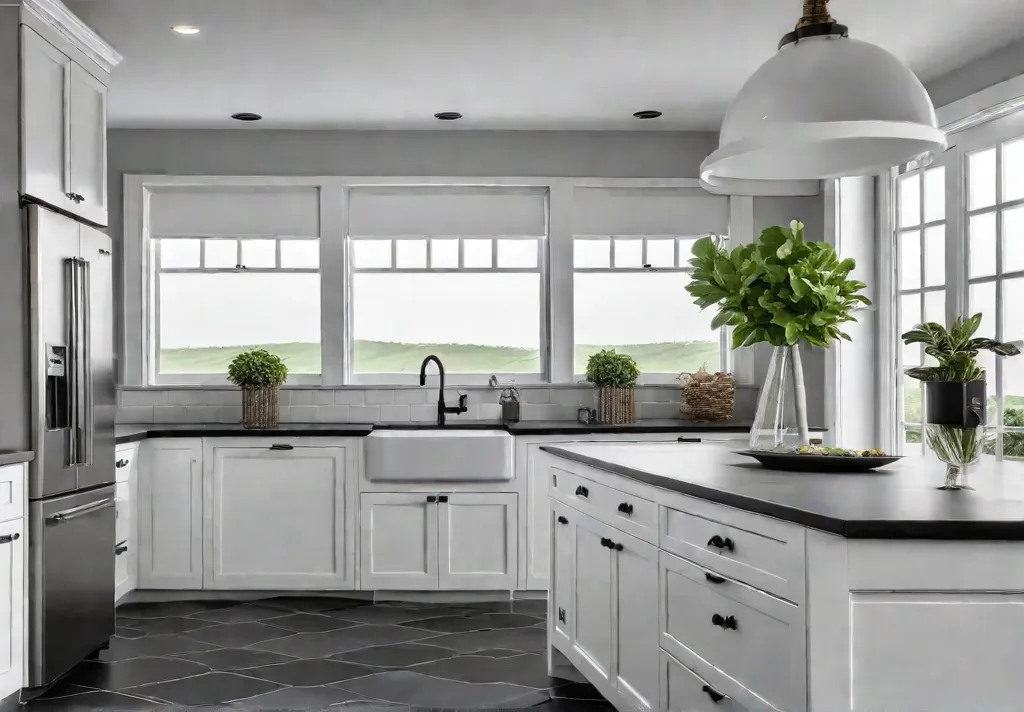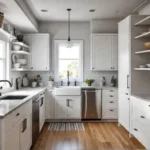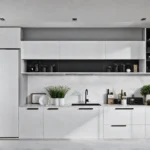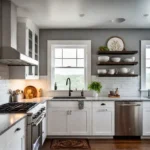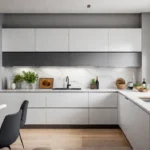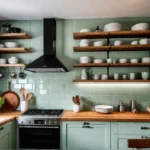Have you ever stepped into a friend’s kitchen and felt a sudden pang of envy? The floors gleam, the tiles radiate warmth, and every surface seems to whisper, “Welcome home.” If you’re like me, you’ve probably dreamed of transforming your kitchen into a showpiece that effortlessly blends style and durability. Well, dream no more, my friends! In this article, we’ll dive headfirst into the world of durable and dazzling kitchen floor tiles, exploring the perfect options for high-traffic homes like yours.
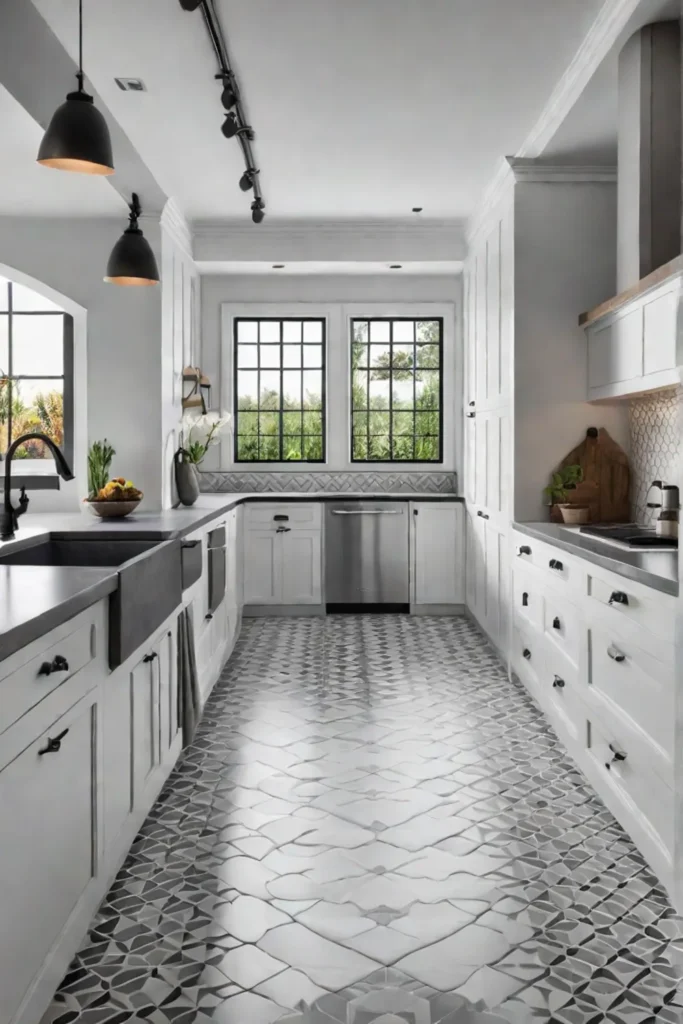
Whether you’re a busy parent juggling a million tasks or a passionate home chef who spends hours in the kitchen, you need floors that can withstand the daily grind without sacrificing beauty. From the ultra-tough porcelain stoneware to the timeless elegance of natural stone, we’ll uncover a treasure trove of tile options that will turn your kitchen into a true masterpiece – one that not only looks stunning but also stands the test of time (and the occasional spill or dropped pan!).
Understanding Tile Durability: What to Consider for High-Traffic Kitchens
When it comes to high-traffic kitchens, durability should be at the top of your priority list. After all, these spaces are the heart of our homes, where spills, heavy foot traffic, and occasional mishaps are inevitable. To ensure your kitchen floor can withstand the test of time (and your family’s adventures), it’s crucial to understand the factors that contribute to a tile’s durability.
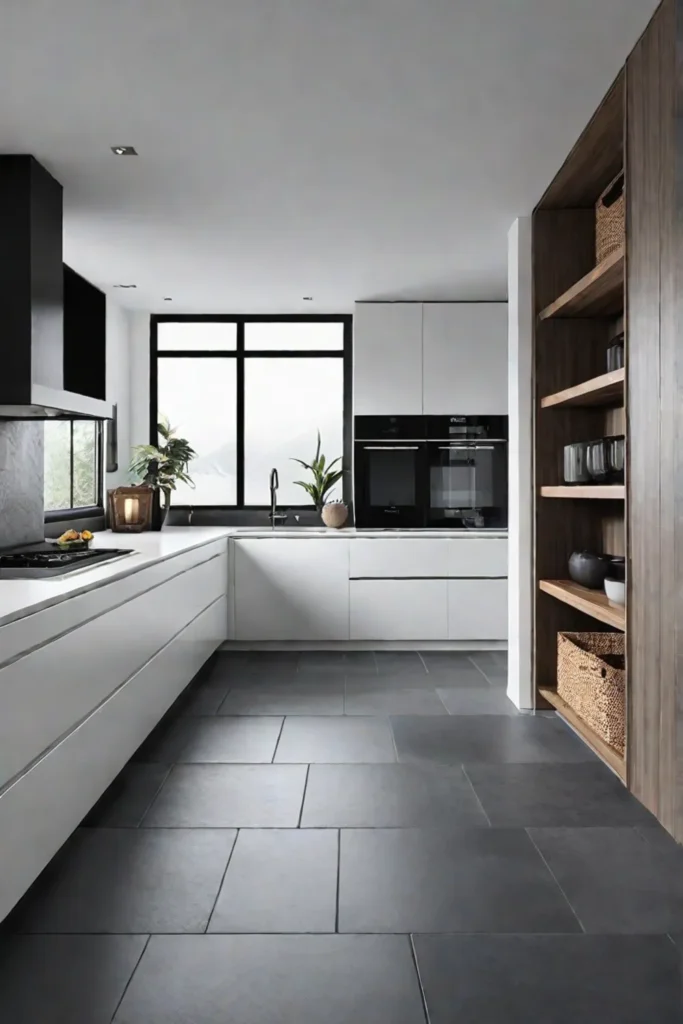
Decoding the PEI Rating System: A Guide to Understanding Wear Resistance
One of the most important indicators of a tile’s durability is its PEI rating, which stands for Porcelain Enamel Institute. This rating system, ranging from 1 to 5, evaluates a tile’s resistance to wear and tear. Here’s a quick breakdown:
- PEI 1: Suitable for walls only, not recommended for floors.
- PEI 2: Can handle light residential traffic, like a guest bathroom.
- PEI 3: Ideal for residential spaces with moderate foot traffic.
- PEI 4: Built for heavy residential and light commercial use, like a family kitchen.
- PEI 5: Designed to withstand the most demanding conditions in high-traffic commercial spaces.
For busy family kitchens, I always recommend choosing tiles with a PEI rating of 4 or higher. These tough cookies can handle the daily grind of cooking, cleaning, and the occasional dropped pan or two.
Beyond Scratch and Stain: Water Resistance and Slip Resistance for Safety and Longevity
While wear resistance is crucial, it’s not the only factor to consider when choosing durable kitchen tiles. Water resistance and slip resistance are equally important, especially in an area prone to spills and moisture.
Porcelain tiles generally have a lower water absorption rate than ceramic tiles, making them more resistant to moisture damage and staining. Look for tiles with a water absorption rate of less than 0.5% for optimal protection against water-related issues.
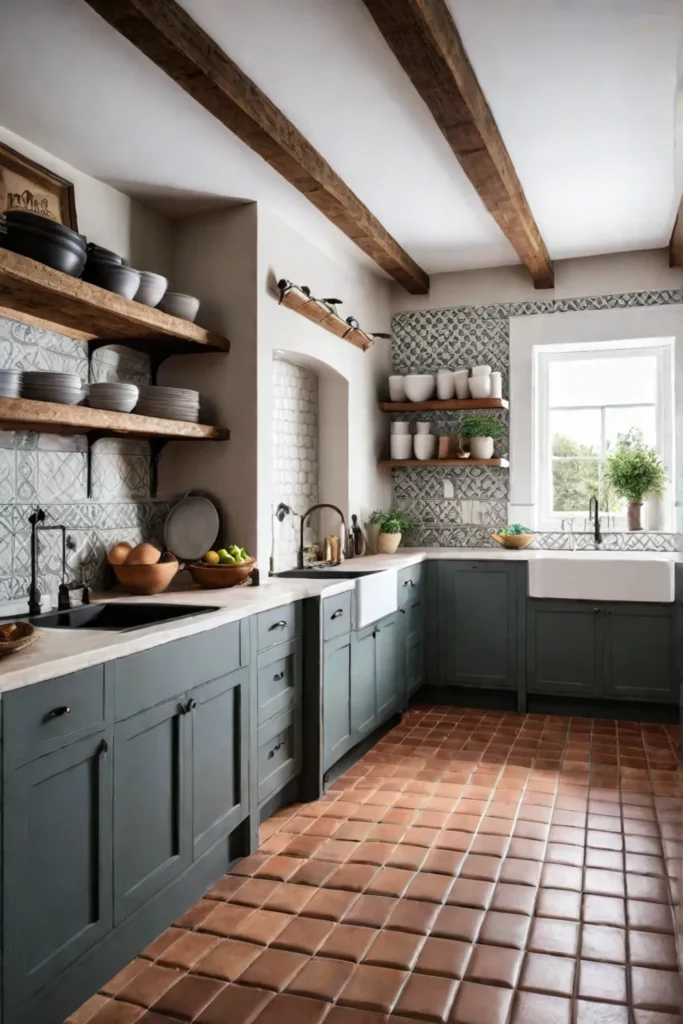
Additionally, pay attention to the tile’s coefficient of friction (COF), which measures its slip resistance. For improved safety and longevity, aim for tiles with a COF of 0.6 or higher, especially in areas where spills are likely to occur.
By considering these durability factors, you’ll not only ensure your kitchen floor can withstand the demands of a high-traffic household but also create a safer, more functional space for your family.
When it comes to durability and style, few materials can match the versatility and resilience of porcelain stoneware tiles. In the next section, we’ll dive into the world of this practical yet elegant flooring option, exploring its unique characteristics and why it’s a top choice for high-traffic kitchens.
Porcelain Stoneware: The Champion of Durability and Style
Porcelain stoneware tiles are the ultimate choice for high-traffic kitchens, combining exceptional durability with endless design possibilities. Let’s dive into what makes these tiles so special.
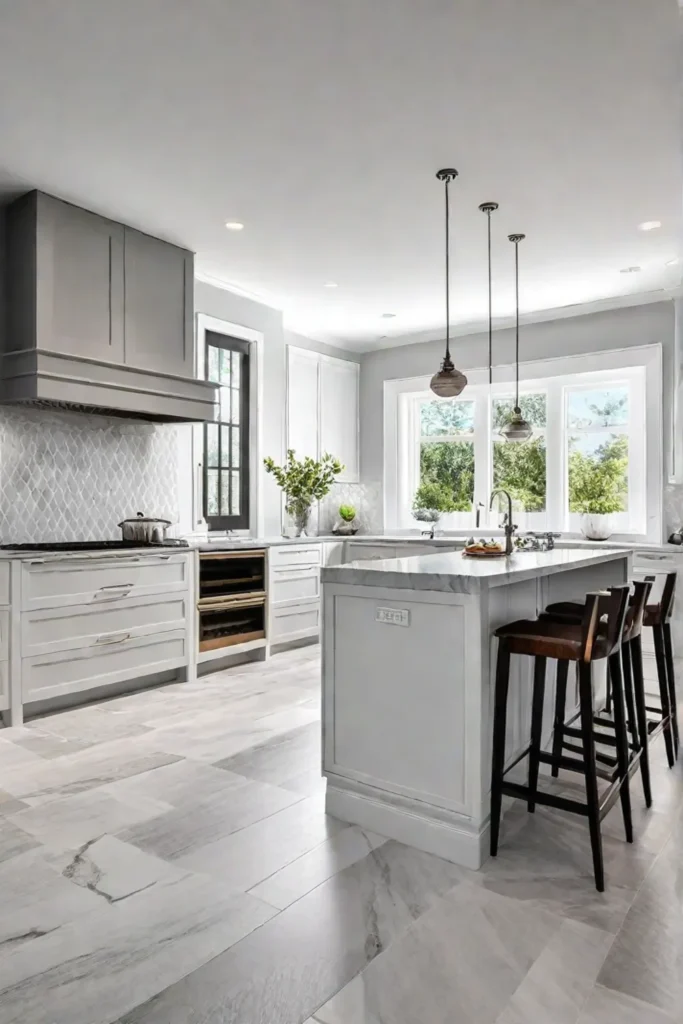
The Science Behind Porcelain Stoneware’s Strength: From Clay to Kiln
At the heart of porcelain stoneware’s toughness lies its unique manufacturing process. These tiles are crafted from dense, refined clay that is fired at scorching temperatures, resulting in a rock-solid material that can withstand even the most demanding kitchen conditions.
Unlike traditional ceramic tiles, porcelain stoneware is non-porous, meaning it won’t absorb spills, stains, or moisture. This makes it incredibly low-maintenance and resistant to cracking, chipping, or fading over time. Porcelain tiles are so robust that they can even be used for outdoor applications!
Endless Design Possibilities: Exploring the Versatility of Porcelain Tile
But durability isn’t the only reason to love porcelain stoneware. Thanks to modern digital printing technology, these tiles can mimic the intricate patterns and textures of natural materials like stone, wood, or concrete with remarkable realism.
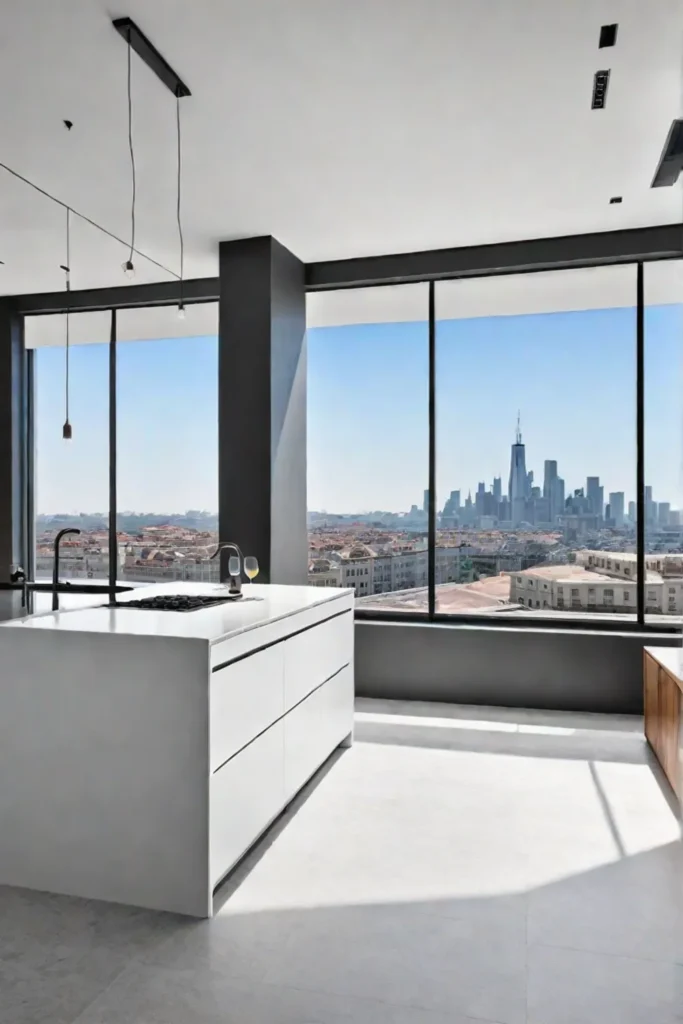
From sleek, modern styles to rustic, earthy vibes, porcelain tiles offer a vast array of colors, patterns, and finishes to complement any kitchen aesthetic. Whether you prefer the timeless elegance of marble or the warm, inviting look of distressed wood, there’s a porcelain tile option to suit your taste.
Tile Finishes and Maintenance
When it comes to tile finishes, porcelain stoneware offers several options:
- Polished: A glossy, reflective finish that adds a touch of elegance and makes cleaning a breeze.
- Matte: A smooth, non-shiny surface that provides a more understated, modern look and hides minor scratches and scuffs.
- Textured: Tiles with a slightly raised or embossed pattern, offering enhanced slip resistance and a unique visual appeal.
Regardless of the finish, porcelain tiles require minimal maintenance. A regular sweep or vacuum, followed by occasional damp mopping, is usually sufficient to keep them looking their best.
Cost Comparison
While porcelain stoneware tiles may initially cost more than some other flooring options, their unmatched durability and longevity make them a wise investment in the long run. Compared to natural stone, which can be porous and prone to staining, porcelain tiles offer superior stain resistance and easier maintenance.
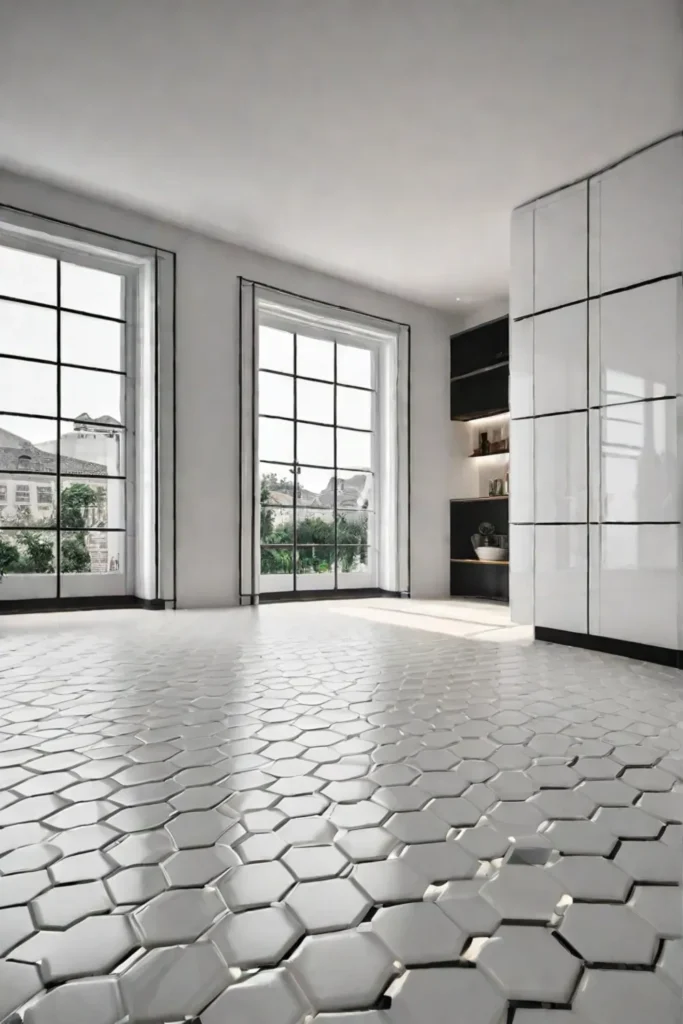
When it comes to luxury vinyl planks (LVP), while they can be a budget-friendly alternative, they may not offer the same level of durability and scratch resistance as porcelain tiles, especially in high-traffic areas.
Key Takeaways
Porcelain stoneware tiles truly offer the best of both worlds – unbeatable durability and endless design possibilities. Whether you’re aiming for a sleek, modern aesthetic or a warm, rustic vibe, these tiles can transform your kitchen into a stylish and functional space that can withstand the test of time and heavy foot traffic.
So, if you’re planning a kitchen renovation or simply want to update your floors, consider porcelain stoneware tiles for a durable and dazzling solution that will elevate your space for years to come.
While porcelain stoneware tiles are an exceptional choice for high-traffic kitchens, they’re not the only durable option out there. In the next section, we’ll explore some other tile materials that can stand up to the demands of a busy household while adding their unique charm and character to your kitchen.
Beyond Porcelain: Exploring Other Durable Tile Options
While porcelain tiles are a popular choice for high-traffic kitchens, they’re not the only game in town. If you’re looking to mix things up or have specific needs, it’s worth exploring other durable tile options that can bring a unique flair to your kitchen floors.
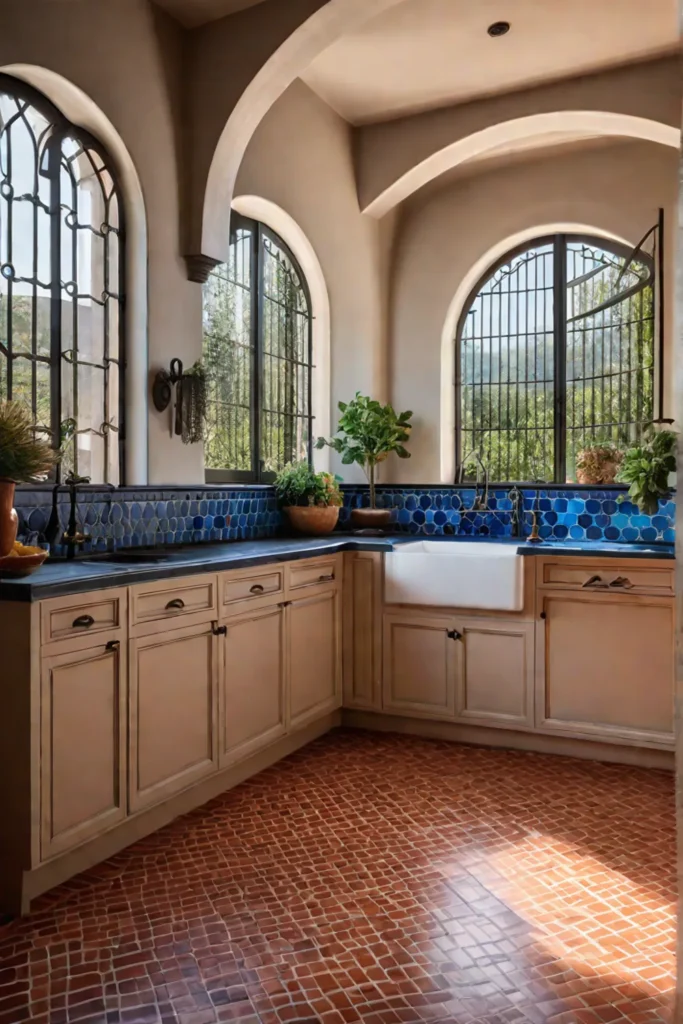
Ceramic Tile: A Budget-Friendly Option for Moderate Traffic
For homeowners on a budget or those with moderate kitchen traffic, ceramic tiles can be a great alternative to porcelain. Made from clay fired at lower temperatures, ceramic tiles are generally more affordable than their porcelain counterparts. They come in a wide range of colors, patterns, and styles, allowing you to create a look that suits your taste.
One of the advantages of ceramic tiles is their versatility. You can choose from glazed or unglazed options, with glazed tiles offering enhanced stain resistance – a must-have for busy kitchens. Just remember that while ceramic tiles are durable, they may not hold up as well as porcelain in high-traffic areas.
Natural Stone Alternatives: Slate, Quartzite, and Their Unique Appeal
If you’re willing to invest a bit more, natural stone tiles like slate and quartzite can bring a touch of luxury and timeless beauty to your kitchen floors. Slate, in particular, is known for its durability and unique texture, making it a perfect choice for those seeking a rustic or farmhouse-inspired aesthetic.
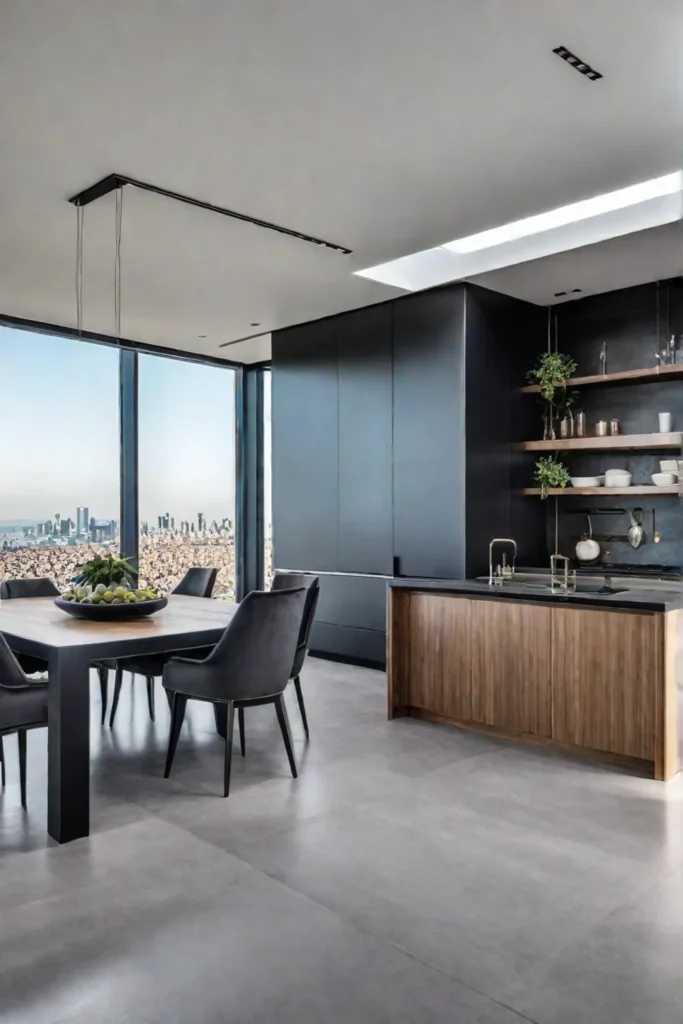
However, it’s important to note that natural stone tiles require a bit more maintenance than their manufactured counterparts. Slate, for instance, needs to be sealed regularly to prevent staining and moisture damage. But with proper care, these tiles can last for decades or even centuries, making them a worthwhile investment for the long haul.
Quartzite, on the other hand, is an extremely hard and dense stone, resistant to scratches, heat, and everyday wear and tear. Its luxurious look and durability come at a premium price, but for those who want a truly show-stopping kitchen floor, quartzite is hard to beat.
When it comes to installation, natural stone tiles often require a bit more expertise than ceramic or porcelain. It’s essential to work with a professional installer who understands the unique characteristics of each material and can ensure a proper and long-lasting installation.
In the end, the choice between natural stone, ceramic, or porcelain tiles will depend on your budget, lifestyle, and desired aesthetic. Each material has its strengths and weaknesses, so careful consideration is key to ensuring the best fit for your high-traffic kitchen.
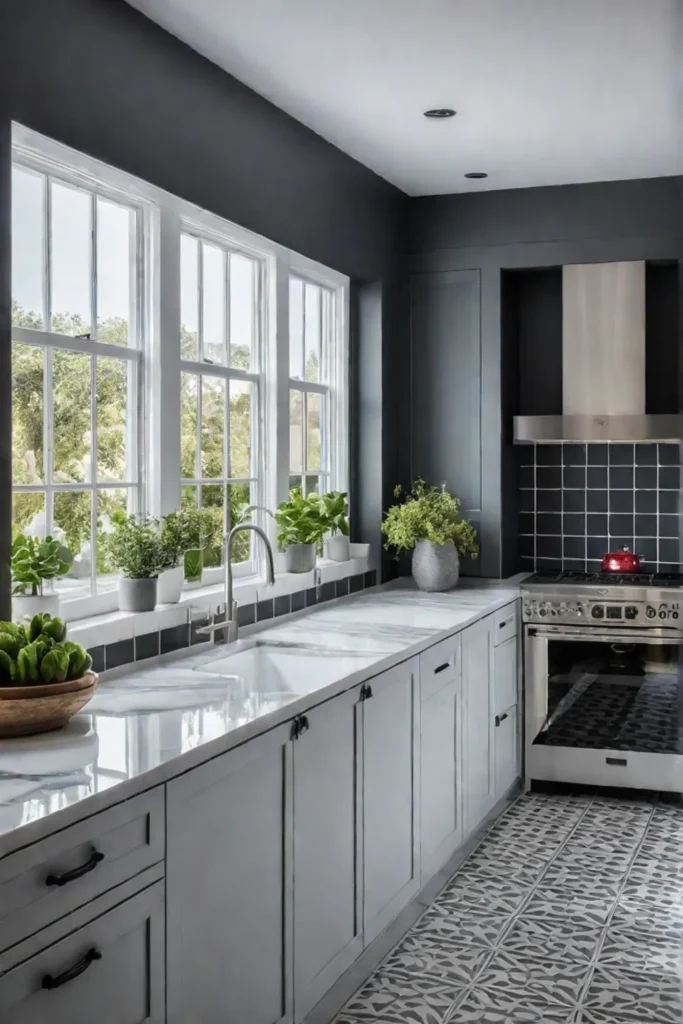
As you explore these durable tile options beyond porcelain, remember to have fun with the process and let your style shine through. After all, your kitchen floor is a canvas for creativity and a reflection of your home’s unique character.
Looking ahead, maintaining your tile floor is just as important as choosing the right material. In the next section, we’ll dive into practical tips for keeping your kitchen tiles looking their best for years to come.
Maintaining Your Tile Floor: Tips for Lasting Beauty
Maintaining the pristine beauty of your tile floor is essential, especially in high-traffic areas of your home. With a little know-how and dedication, you can keep your tiles looking as fresh as the day they were installed. Let’s dive into some practical tips to help you preserve the dazzling charm of your floors for years to come.
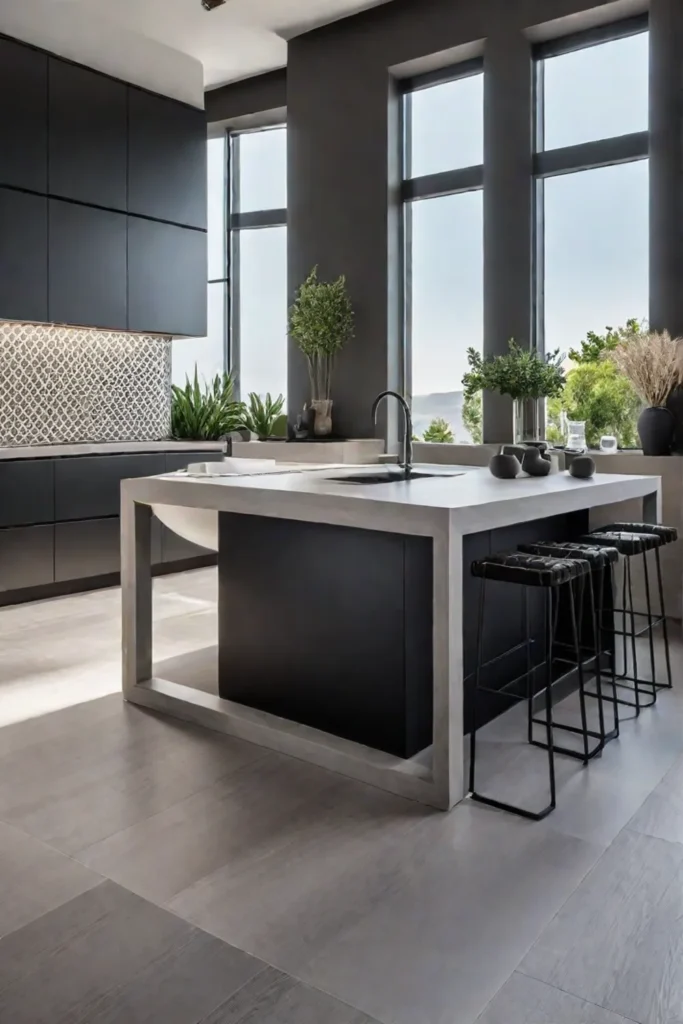
Cleaning Routine: Sweeping, Mopping, and Tackling Everyday Grime
The key to maintaining a spotless tile floor lies in establishing a consistent cleaning routine. Start by sweeping or vacuuming regularly to remove loose dirt and debris that can scratch or dull the surface over time. For deeper cleaning, opt for a pH-neutral cleaner specifically designed for tile and grout. These specialized products are gentle yet effective, ensuring your tiles retain their vibrant colors and glossy finish.
Stain Removal Strategies: Dealing with Spills and Splatters Effectively
Accidents happen, but that doesn’t mean you have to live with unsightly stains on your beautiful tile floor. When spills occur, act quickly to prevent the liquid from seeping into the grout lines. Blot up the mess with a clean, absorbent cloth, and then follow up with a suitable tile cleaner or homemade solution. For tough stains, you can create a paste with baking soda and water, gently scrubbing the affected area before rinsing thoroughly.
One pro tip: Sealing your grout lines periodically can work wonders in preventing staining and simplifying your cleaning routine. A well-sealed grout not only enhances the overall appearance of your tile floor but also makes it easier to maintain that fresh, just-installed look.
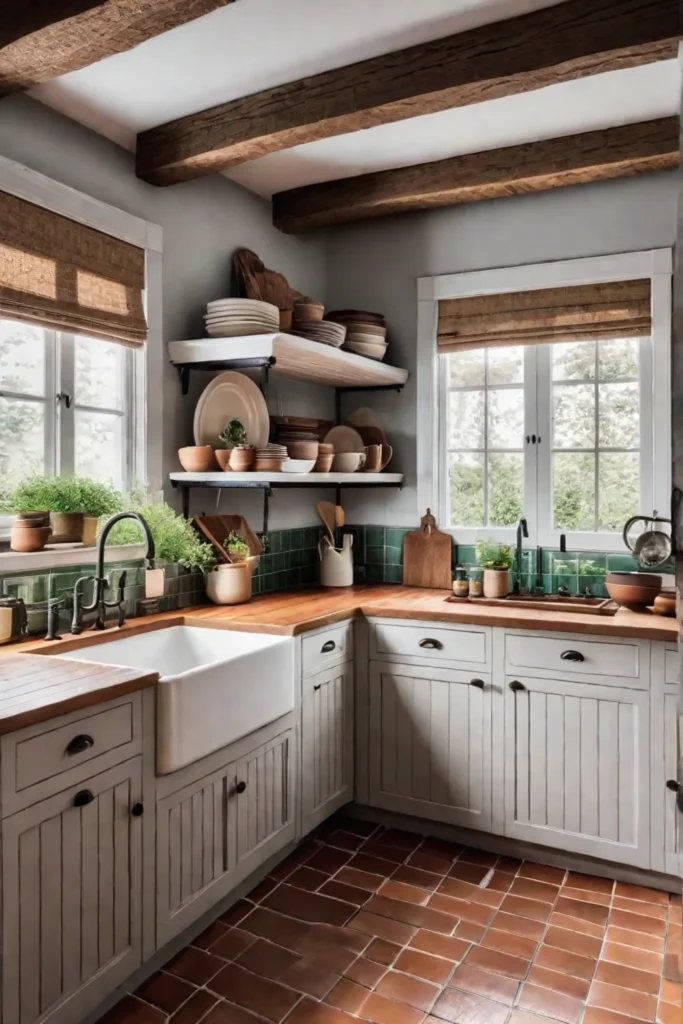
Proper maintenance is the key to preserving the beauty and extending the lifespan of your tile floor. By establishing a regular cleaning routine, using appropriate cleaning products, and promptly addressing spills and stains, you can enjoy the dazzling charm of your tiles for years to come.
As we transition to the next section, it’s important to remember that the grout lines play a crucial role in the durability and longevity of your tile installation.
Choosing the Right Grout: The Unsung Hero of Tile Durability
When it comes to creating a durable and long-lasting tile floor for your high-traffic kitchen, the choice of grout is just as crucial as selecting the right tiles. Grout plays a vital role in holding your tiles together and protecting them from moisture and stains, but it’s often overlooked in the grand scheme of tile installation.
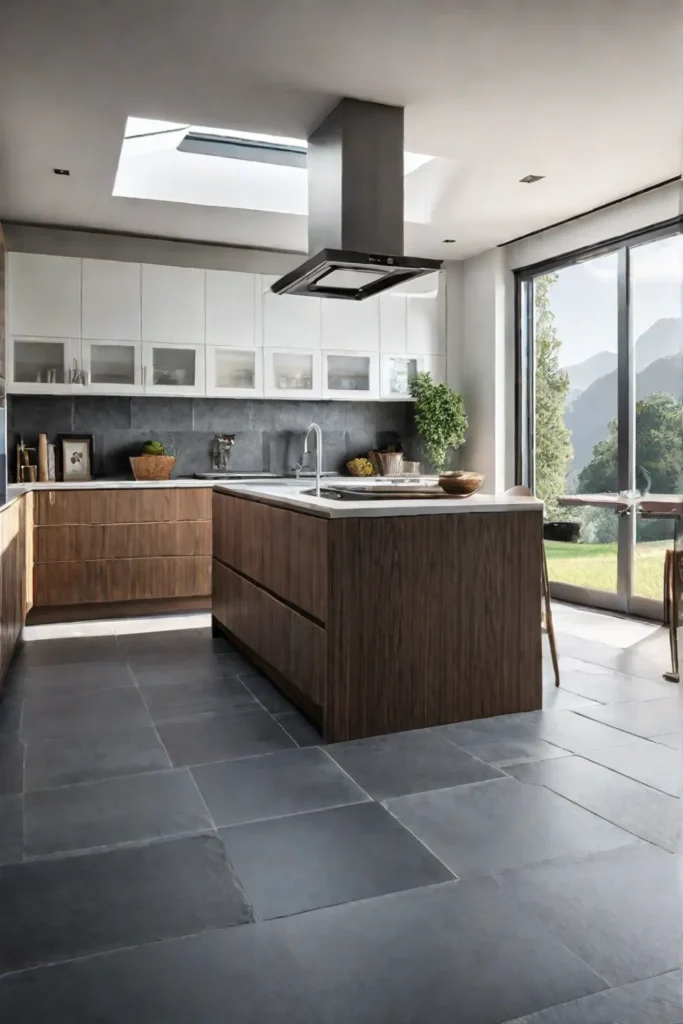
Epoxy vs. Cement-Based Grout: Weighing the Pros and Cons
For high-traffic areas like kitchens, epoxy grout is a game-changer. This type of grout is highly resistant to stains, chemicals, and moisture, making it an ideal choice for areas prone to spills and heavy foot traffic. However, epoxy grout can be more expensive and challenging to work with compared to traditional cement-based grout.
On the other hand, cement-based grout is a more affordable and user-friendly option, but it may not offer the same level of protection against stains and moisture as epoxy grout. If you opt for cement-based grout in your kitchen, be prepared to seal and maintain it regularly to ensure its longevity.
The Power of Color: Selecting Grout that Complements Your Tile Choice
Believe it or not, the color of your grout can significantly impact the overall aesthetic and durability of your tile floor. Darker grout colors tend to hide stains better, making them a practical choice for high-traffic areas. However, they can also make a small room feel closed in and less inviting.
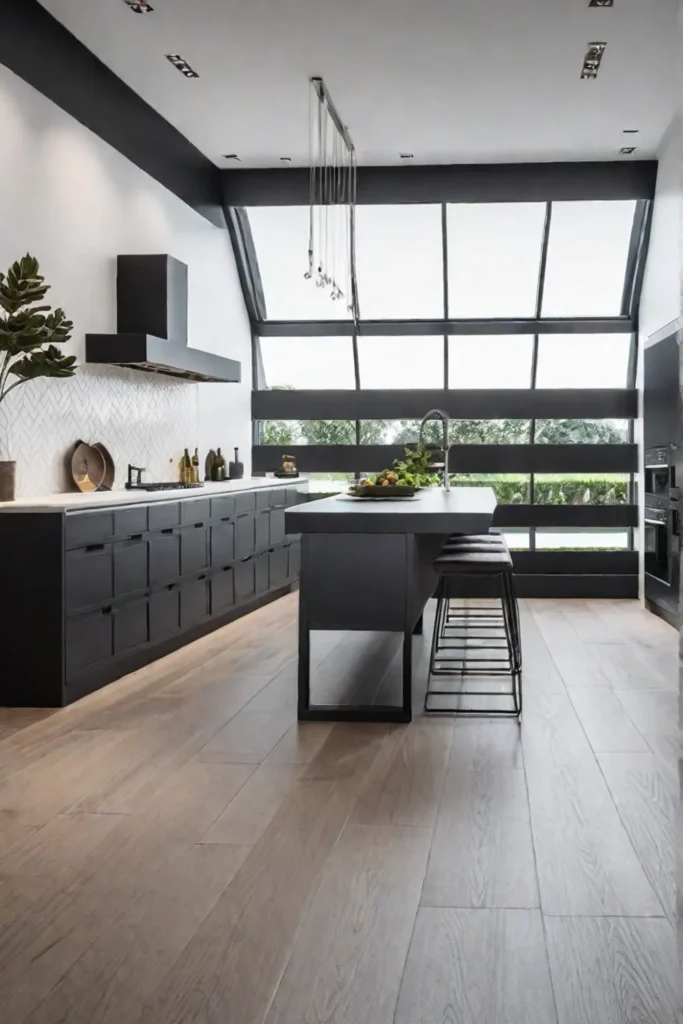
Lighter grout colors, on the other hand, can create a sense of openness and brightness, but they may show dirt and stains more easily. Consider choosing a grout color that complements your tile choice without overpowering the overall design.
One pro tip? If you’re going for a more seamless, modern look, opt for a grout color that matches your tiles. This can create a sleek, continuous surface that’s both visually appealing and easy to maintain.
As for the latest advancements in grout technology, you’ll be pleased to know that there are now stain-resistant and antimicrobial options available on the market. These innovative grout formulations can help keep your tile floors looking fresh and hygienic for years to come.
Additionally, the width of your grout lines can also impact the overall aesthetic and maintenance of your tile floor. Wider grout lines can create a more rustic, textured look but may require more frequent cleaning. Narrower grout lines, on the other hand, can give a sleek, modern appearance but may be more prone to cracking over time.
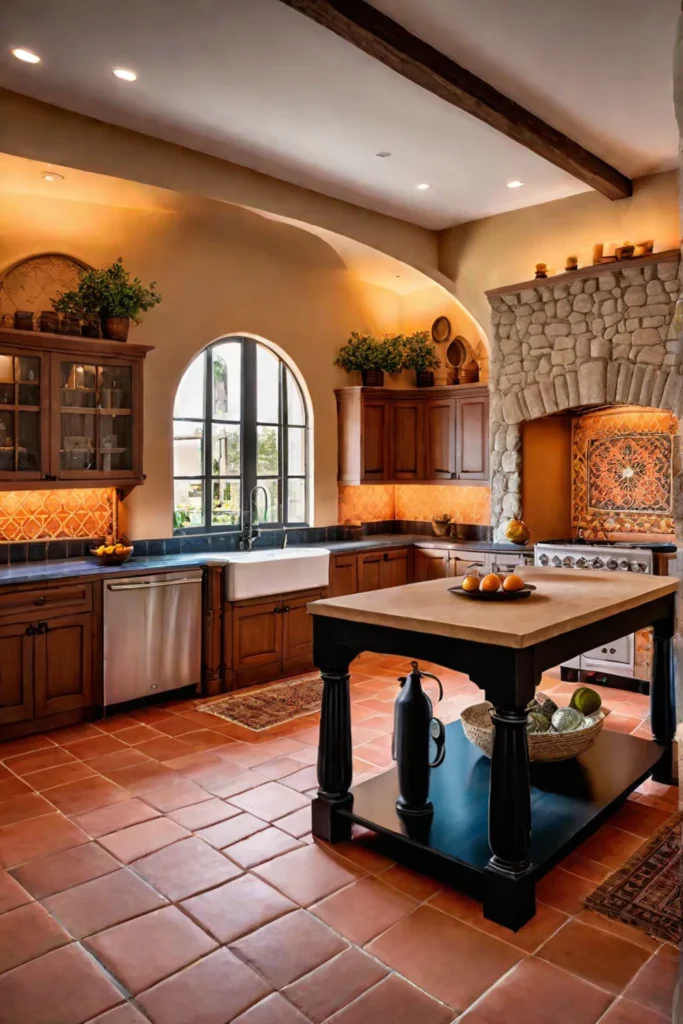
In the end, selecting the appropriate grout is as important as choosing the right tile for ensuring a durable and beautiful floor in your high-traffic kitchen. Consider factors like stain resistance, water resistance, and color when making your grout selection, and don’t be afraid to seek professional advice if you’re unsure about the best option for your needs.
With the right grout and proper maintenance, your kitchen floor can be a true showstopper that withstands the test of time and heavy foot traffic.
Wrapping Up
As we bid farewell to our tile journey, let’s take a moment to reflect on the incredible possibilities that await your high-traffic kitchen. Whether you opt for the unbeatable durability of porcelain stoneware, the rustic charm of slate, or the luxurious allure of quartzite, one thing is certain: your kitchen floor can be a true showstopper that not only withstands the demands of daily life but also elevates the entire space with its sheer beauty.
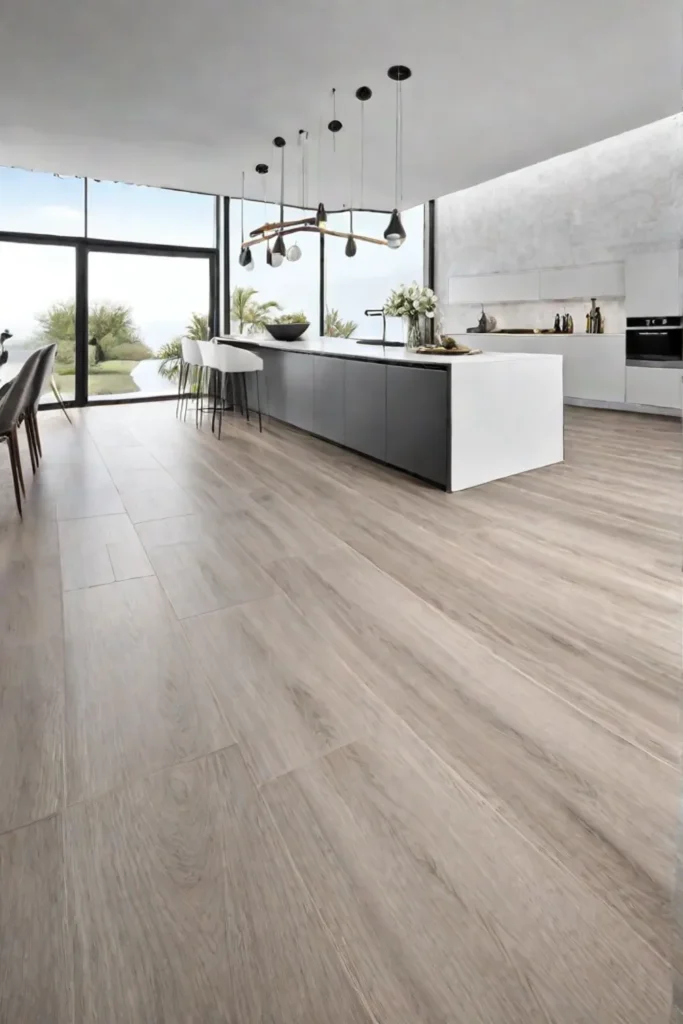
Remember, the key to a long-lasting and gorgeous tile floor lies in the details – from selecting the right grout to establishing a consistent cleaning routine. With a little bit of care and attention, your kitchen will become a haven of style and functionality, a place where memories are made and adventures are fueled by the warmth and inviting atmosphere.
So, embrace the opportunity to transform your kitchen into a space that truly reflects your family’s unique personality and lifestyle. Whether you prefer sleek and modern or warm and rustic, the perfect tile awaits, ready to elevate your home to new heights of beauty and durability. Embrace the journey, and let your kitchen floor be the canvas upon which you create a masterpiece that will inspire and delight for years to come.
